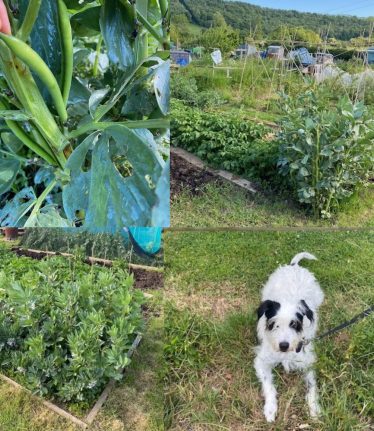The Therapeutic Benefits of Allotment
Allotment gardening, also known as community gardening or simply "allotments," refers to cultivating a small plot of land, typically within an urban or suburban setting, for personal use or shared with a community. While the primary purpose of allotments is often associated with growing fresh produce, their therapeutic benefits extend far beyond the tangible fruits of labour. Engaging in allotment gardening has been recognised for its numerous physical, mental, and social advantages, making it a powerful tool for promoting well-being and improving quality of life.
From a physical perspective, allotment gardening provides a valuable opportunity for individuals to engage in regular physical activity. The tasks involved, such as digging, weeding, planting, and harvesting, require various degrees of physical effort, contributing to increased strength, flexibility, and cardiovascular fitness. Gardening is a low-impact exercise that can be tailored to suit people of different ages, abilities, and fitness levels. TNatural vitamin D production, essential for healthy bones and an immune system, is also made possible by spending time outside in the sunshine and fresh air.
Moreover, allotment gardening offers significant mental health benefits. It provides a break from the fast-paced, technology-driven modern world, allowing individuals to connect with nature and experience a sense of tranquilly. The repetitive and rhythmic nature of gardening tasks can be calming, reducing stress and promoting relaxation. It has been demonstrated that working with plants and soil can lessen the symptoms of anxiety, depression, and other mental health issues. Nurturing plants and witnessing their growth from seed to harvest can foster a sense of accomplishment, self-esteem, and purpose, enhancing overall psychological well-being.
Furthermore, allotment gardening facilitates social interaction and community engagement. Allotment sites often function as vibrant social spaces, bringing together individuals from diverse backgrounds who share a common interest in gardening. These spaces foster a sense of belonging and provide opportunities for socialising, exchanging knowledge, and building relationships. Collaborative activities, such as communal gardening projects and shared harvests, promote teamwork and cooperation, enhancing social cohesion and reducing feelings of isolation or loneliness. Allotments can also serve as platforms for intergenerational interaction, bridging the gap between different age groups and promoting community pride.
In summary, the therapeutic benefits of allotment gardening are multifaceted. This activity promotes physical fitness, mental well-being, and social connections. Whether it's the joy of witnessing a seedling sprout or the satisfaction of harvesting homegrown vegetables, allotment gardening offers a holistic approach to improving one's quality of life. By providing a space for individuals to reconnect with nature, nurture their physical and mental health, and forge meaningful

